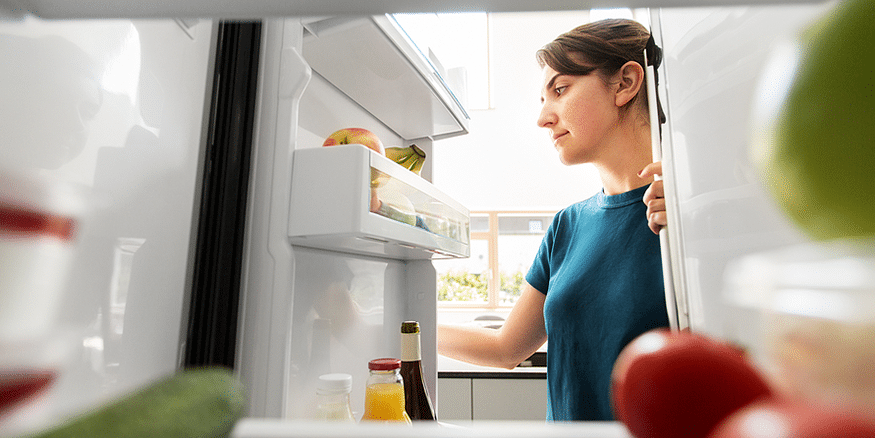
Ileostomies & Colostomies and Diet
For individuals with an ileostomy (opening into the ileum) or a colostomy (opening into the colon), a well-balanced diet is important.
For both groups, there are losses of fluid via the ostomy because water is normally reabsorbed by the body in the colon. A typical fluid intake per day for people with Ileostomies or colostomies is two litres (or 8 cups). It is best to drink mostly water and limit drink high in caffeine like colas, strong tea, or coffee.
Neither group should limit salt in their diets. Salt, which is normally reabsorbed in the colon, is lost through ostomies. People with Ileostomies should use extra salt on their meals because of the risk of dehydration. People with colostomies should not restrict salt but take a moderate amount win their regular diet.
Supplementation of Vitamins B12, A, D, E and K may be necessary if more than 100 cm of the terminal ileum has been removed with the ileostomy. Ask your physician if this applies to you.
People with ostomies may potentially develop problems like diarrhea, constipation, odour, gas and/or blockage. Most can enjoy a regular diet, but it may be necessary to make some adjustments if any of the above problems occur.
Diarrhea
Stool output from an ileostomy is usually liquid in texture therefore, diarrhea is usually considered to be more than 1000 ml of loose, liquid stool per day. Diarrhea in individuals with colostomies is usually defined as frequent, watery stools. The following may help to relieve diarrhea:
- Increase you fluid intake to 2 ½ litres (10 cups) per day.
- Take foods that may thicken stool like apple sauce, bananas, yogurt, rice and oatmeal.
- Limit foods that may aggravate the diarrhea like prunes, prune juice, alcohol, broccoli, cauliflower, brussel sprouts and cabbage.
- Use extra salt or eat salty foods.
- Choose foods high in potassium like bananas, oranges, tomatoes, potatoes, meats and dried fruits.
Constipation
Constipation can occur in individuals with colostomies only (not with Ileostomies). The following can help relieve constipation:
- Drink a minimum of 2 ½ litres (10 cups) per day of fluid.
- Eat foods high in fibre like bran, fruits, vegetables and whole grains. Prunes and prune juice may also help.
Odour
If odour is a problem, you may want to:
- Limit foods that increase odour, such as broccoli, cauliflower, cabbage, turnip, brussel sprouts, legumes, garlic and onion.
- Increase foods that reduce odour, such as parsley, buttermilk and yogurt.
Gas
Gas may be caused by many of the above listed under foods that should be limited to reduce odour. Gas can also be caused by swallowing too much air so chewing gum and drinking carbonated beverages should be limited if gas is a problem.
Blockage
Blockages may occur in people with Ileostomies. If there is no stool output for several hours from the ileostomy, then a blockage may have occurred. To prevent a blockage:
- Drink at least 2 ½ litres (10 cups) of fluid per day.
- When first trying high fibre foods after surgery (ileostomy), choose only one new food at a time. Foods that have seeds or pits should be tried cautiously (e.g. popcorn, nuts, seeds, corn, strawberries or raspberries).
Conclusion
People with ostomies can usually eat a regular diet as long as it contains adequate amounts of fluid and salt. When adding a new food, especially one that could contribute to a potential problem, (diarrhea, constipation, odour, gas, or blockage) only one new food should be tried at a time. Being aware of problems that may arise and how to help relieve these are important in caring for your ostomy.

